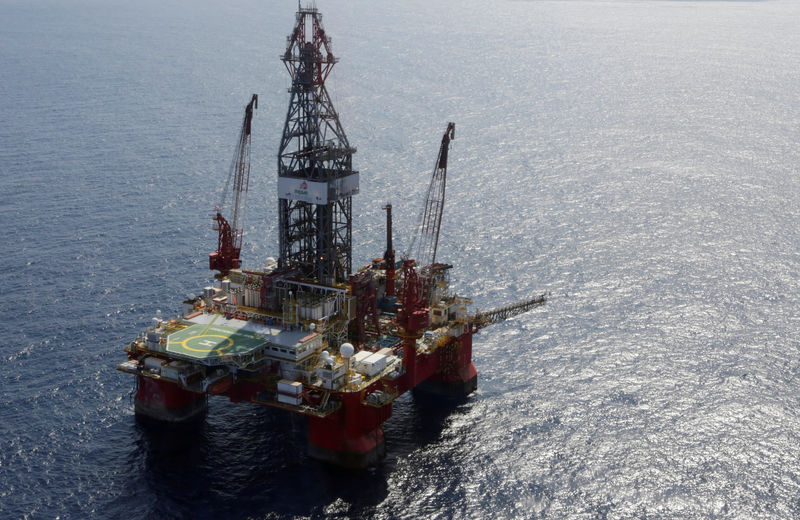By Alexandra Alper and Marianna Parraga
RIO DE JANEIRO/MEXICO CITY (Reuters) - Oil and gas companies are gathering in Mexico and Brazil this week for what may be two of their last chances to compete for some of the world's biggest reserves ahead of elections that could dial back energy reforms in both countries.
An auction of rights to explore and produce oil from shallow waters off Mexico and an onshore and offshore auction round in Brazil are taking place months before presidential elections in Latin America's top two economies. Leftist contenders have pledged to reverse or slow the flow of private money into the oil industry in both countries.
The uncertainty of the elections could spur some companies to win bids to lock in access to new exploration areas.
"There is indeed a feeling that these could be the last (auctions) for a while," an executive for one company registered to bid in both countries said on condition of anonymity.
Other firms could hold off competing until they see if elections bring any changes to contracts or terms.
Mexico's leftist firebrand candidate Andres Manuel Lopez Obrador, who is leading in opinion polls, has said he will review over 90 contracts signed since Mexico passed legislation in 2013 ending the 75-year monopoly of state energy firm Pemex.
This month Lopez Obrador plans to ask President Enrique Pena Nieto to cancel two auctions planned for the second half of the year if he wins the July election.
Support for Lopez Obrador is pegged at around 29.5 percent compared with 21.2 percent for his nearest rival, according to polls.
In Brazil, the most likely leftist contender in the presidential race, Ciro Ferreira Gomes, has warned off potential oil company bidders, saying he would expropriate energy assets bought by private investors if he wins the October election.
Gomes, a former governor, is trailing rightist candidate Jair Bolsonaro in polls where former President Luiz Inacio Lula da Silva, who has vowed to run but is likely to be barred due to a corruption investigation, is not offered as a candidate.
"The companies might now want greater rates of return or they could get to a point where they will not want that level of risk," said Alfredo Alvarez, head of the North Latin America energy group for consultancy EY in Mexico.
Most oil executives and analysts told Reuters they are not expecting the reforms to be fully reversed in either country. But many see a slower bidding calendar and changes in contract terms as real possibilities.
"The speed of the auctions could be slower and even stop, but the reform is protected in the constitution, which requires two-thirds of the Senate and the lower house to change," Pemex Chief Executive Officer Carlos Trevino said earlier this month in Houston.
(Graphic including blocks on offer in both auctions: https://tmsnrt.rs/2pzobJo)
OFFERING BIG CUT OF OIL
Brazil's top-quality geology and history of honouring contracts have outweighed worries about political instability. Bids in Thursday's round and in a subsequent auction in June for presalt blocks could be so big they may damage the profitability of any awards, consultancy Wood Mackenzie said.
In September, Exxon Mobil (N:XOM) paid a record $678 million for a Brazilian block with partner Petrobras (SA:PETR4) in a concession-based auction. In another sign of strong demand, firms competing in October to buy stakes in the country's coveted presalt oilfields promised to give the government as much as 80 percent of the oil produced after costs.
For Thursday's auction in Brazil, 21 companies including Chevron (N:CVX), BP (L:BP), Exxon, Royal Dutch Shell (L:RDSa), Statoil (OL:STL), and Total (PA:TOTF) have registered to bid in a round where 70 blocks are being offered.
Majors are likely to vie for a handful of blocks in the prolific offshore Campos and Santos basins, with minimum signing bonuses of up to $575.5 million. Some are rumoured to have desirable presalt geology.
In Mexico, 14 firms and 22 consortia composed of majors and medium-size companies qualified to bid in this week's auction, which will offer 35 blocks in the Gulf of Mexico's shallow waters. The government expects at least seven to be awarded, the energy minister said.

Pemex is likely the round's dominant player because it owns the infrastructure and has accumulated a vast knowledge of the geology.